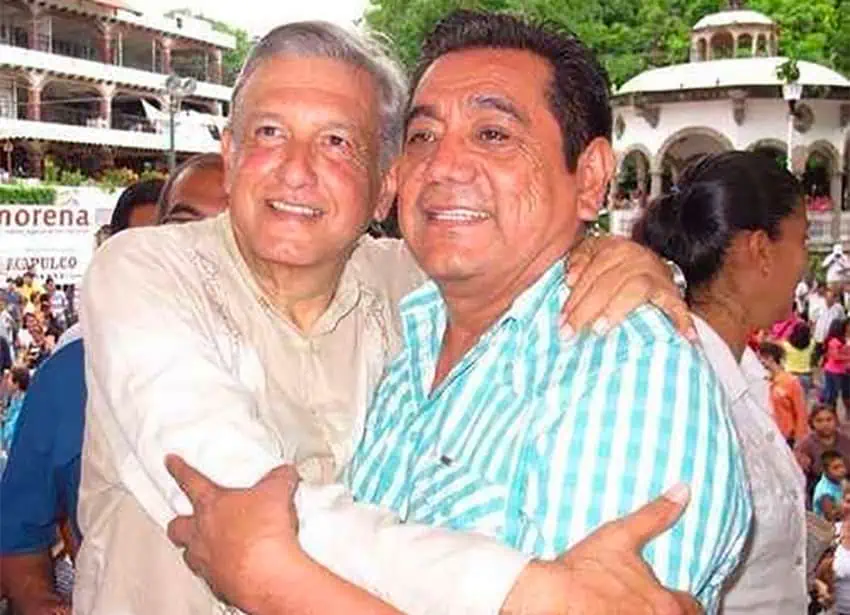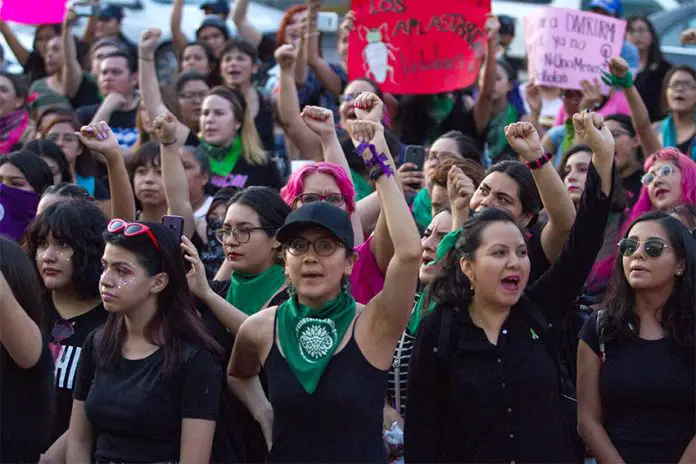A growing scandal has engulfed President López Obrador after he refused to criticize a candidate for a state governorship who is accused of sexually assaulting five women, including one who says she was drugged and then raped.
The political fallout over veteran politician Félix Salgado Macedonio’s candidacy to lead the state of Guerrero in June 6 midterm elections has caused widespread outrage in a country where some 11 women are murdered per day and more than 40% say they have suffered sexual violence.
López Obrador, who says he has “the greatest respect” for the feminist movement, sparked a fierce backlash from women in his own Morena party — especially after he called criticism of Salgado Macedonio’s candidacy a politically motivated “lynching.”
A wave of recent “MeToo” accusations against a leading intellectual, Andrés Roemer, have further highlighted the country’s problems with gender-based violence.
“This is a very hard battle — we are not being heard . . . violence against women has been so normalized,” said Arussi Unda, spokeswoman for Brujas del Mar, a feminist collective which organized a women’s strike on March 9 last year to draw attention to abuses against women.
Salgado is the frontrunner in the Guerrero gubernatorial race — one of 15 up for grabs as López Obrador’s party seeks to boost its share of governorships from its current six.
López Obrador refused to criticize the candidacy on three successive days at his daily news conference, on one occasion cutting off discussion with the colloquial phrase “ya chole” — which translates as “don’t bug me any more about this.”
A poll in the Reforma newspaper found 71% of respondents rejected Salgado’s candidacy.
In a letter to party leaders, a group of female politicians from Morena slammed what they called “the absolute irresponsibility to defend candidacies of unpresentable people.” It was signed by almost 600 women and more than 100 men.
“This shouldn’t even be up for discussion — the simple fact that there are these allegations should be enough [to block his candidacy],” said Patricia Olamendi, a lawyer for Basilia Castañeda. The latter, a Morena party founder member from Guerrero, alleges Salgado raped her in 1998 when she was a teenager.
“Why is the president betting his political capital like this? Why is he getting involved?” Olamendi said.

In a separate set of allegations, a woman claimed Salgado had drugged, raped and beaten her with a belt.
Politicians and demonstrators also took to social media to demand an end to what they called “the pact” — the patriarchal order in Mexico, where women work more and earn less than men and where the vast majority of violent crimes against women go unpunished. Unda called López Obrador’s stance a “revictimization” of abused women.
“The good thing about this is that it’s sparked a public debate,” said Marta Lamas, a leading feminist and professor at Mexico’s National Autonomous University.
Salgado, 64, has revelled in a reputation as a party-loving womanizer and once declared that “everything they say about me is true . . . I have more negatives than positives.” He has, however, denied the sexual allegations.
With the row over Salgado raging, additional accusers have come forward against Roemer in recent days claiming he had invited women to his home and abused them.
The 57-year-old Harvard-educated writer and former Unesco goodwill ambassador has faced allegations from 11 women, including a dancer, Itzel Schnaas.
Roemer has “categorically denied” abusing Schnaas and in media reports has denied all other abuse allegations. Billionaire businessman Ricardo Salinas Pliego, an adviser to López Obrador and head of the Grupo Azteca business empire where Roemer is a broadcaster, slammed the MeToo allegations as “blackmail and lies.”
The scandals meant “we can’t take our eye off the ball . . . we can’t allow aggressors to continue enjoying impunity,” said Yolitzin Jaimes, spokeswoman for the “No Aggressor in Power” collective.
Electoral authorities have until March 4 to rule on the validity of Salgado’s candidacy. If he is allowed to stand, she forecast that International Women’s Day commemorations on March 8 would turn ugly. In November, police in Cancún fired bullets at a women’s protest.
“We’re an inch away from things erupting .. and with their indifference, they’re forcing us to break everything, to burn everything,” Jaimes said.
© 2021 The Financial Times Ltd. All rights reserved. Please do not copy and paste FT articles and redistribute by email or post to the web.
